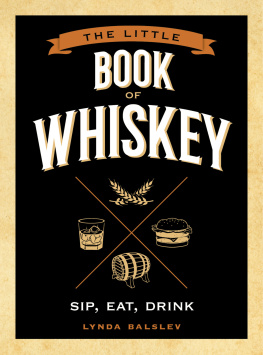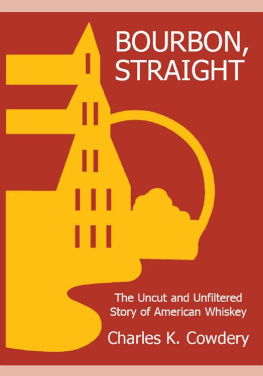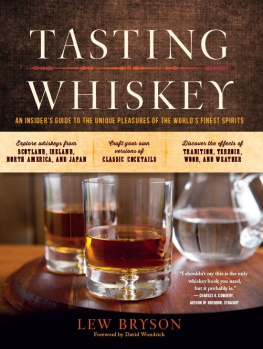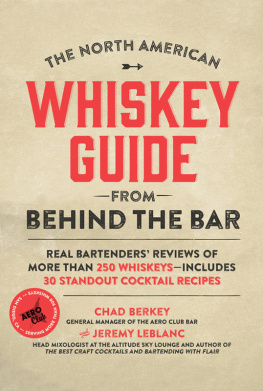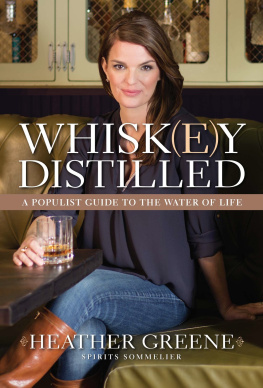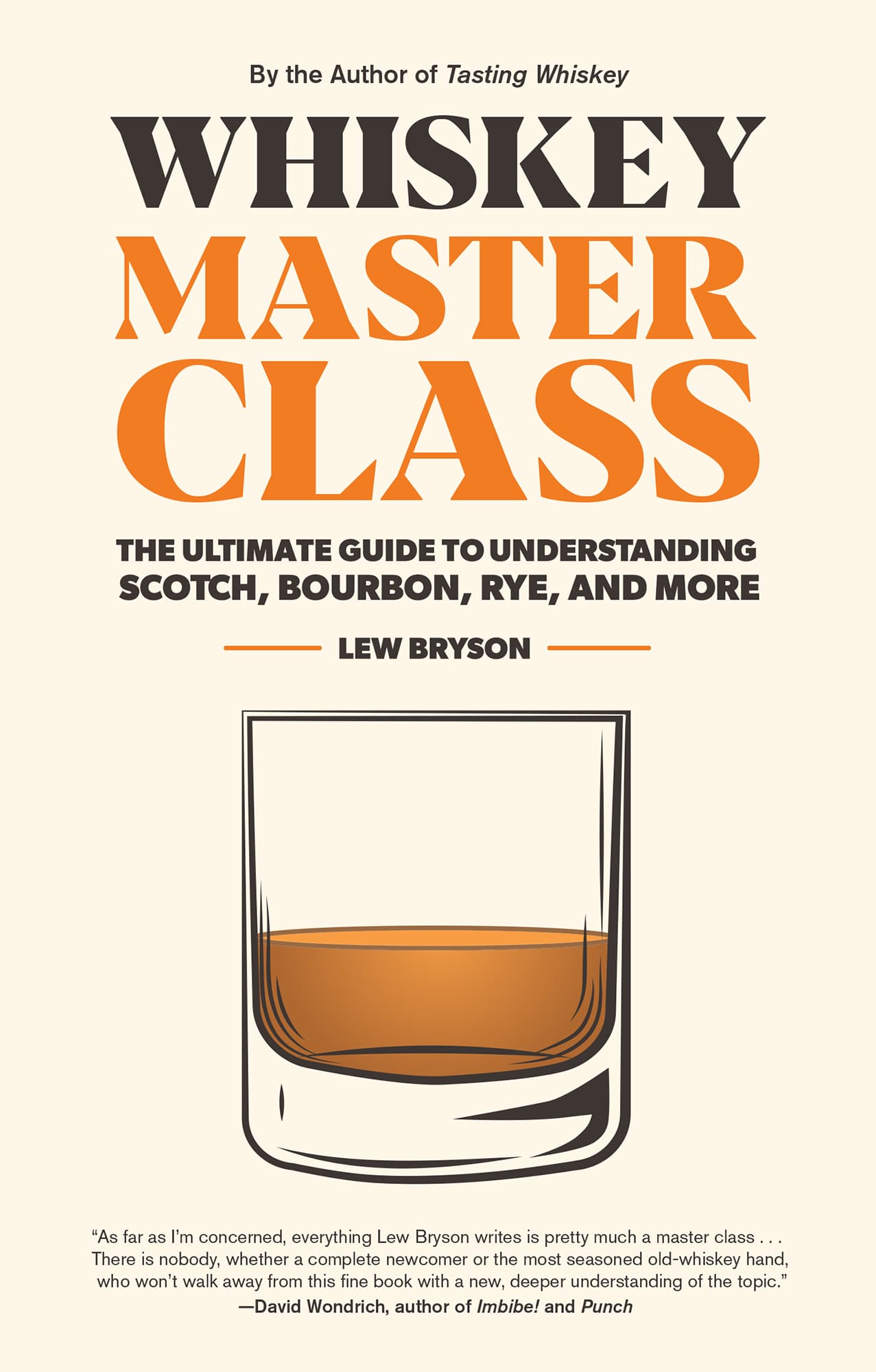Contents
Guide
MORE PRAISE FOR LEW BRYSONS WHISKEY MASTER CLASS
As far as Im concerned, everything Lew Bryson writes is pretty much a master classdeeply informed, as clear as white dog straight from the still, and as brightly illuminating as the August sun beating down on a rickhouse roof. So, when he sets out to teach an actual master classlets just say that there is nobody, whether a complete newcomer or the most seasoned old-whiskey hand, who wont walk away from this fine book with a new, deeper understanding of the topic.
David Wondrich, author of Imbibe! and Punch
Lew uses a cozy, conversational style of writing that makes the reader feel as if they are sitting in front of a quiet fire with an old friend, enjoying the perfect dram. It belies his decades of experience of writing on all things beer and whiskey, and makes Lews technical explanations feel less like an impenetrable fog of science and more like a welcome footnote. This is a must have for anyone looking to enjoy whiskey just a little bit more.
Todd Leopold, Leopold Bros. Distillery & Malthouse
Like all great educators Lew wears his knowledge modestly and dispenses his deep wisdom with a deceptively light touch. His is one of the great voices in the whisky world. Listen to it.
Dave Broom, author of The World Atlas of Whisky
Lew is a true whiskey guy. To enhance your knowledge in the magical world of distilling, my friend Lew Bryson is the perfect place to start. His many years in the whiskey business and his insatiable thirst for knowledge ensures his fans and readers continue to gain great insights and understanding. Lew makes drinking good whiskey great!
Colum Egan, Master Distiller Bushmills Irish Whiskey
WHISKEY MASTER CLASS
THE ULTIMATE GUIDE TO UNDERSTANDING SCOTCH, BOURBON, RYE, AND MORE
LEW BRYSON

FOREWORD
Over the years, there have been many books written on whiskeyeither spelled with an e or not. A lot of these books have been very, very good and proven to be superb introductions for learning about whiskies, especially for beginners new to the subject. Indeed, in my student days at Heriot Watt University, in Edinburgh, I borrowed many of these tomes myself; I even bought a few of them! Many people have enjoyed reading the details of how whiskey is distilled, where the distilleries are located, and theyve loved the often-beautiful photographs and illustrations that accompany these wordshelping to bring the entire subject to life.
If one embarks on a career in the global whiskey industry or becomes much more knowledgeable about the subject through numerous tastings, masterclasses, seminars, and in-depth study, you inevitably reach a stage where to progress there are only two options really. Either you spend many years actually making the stuff, or you find a document or book that covers things in lovely, geeky scientific detail. I hadnt really seen anything that gets close to the latter until now.
I have had the pleasure of knowing and interacting with Lew for many years now, and I have always thoroughly enjoyed the sometimes challenging, but always thought-provoking and enjoyable, debates I have had with him. In addition to his encyclopedic knowledge of the waters of life in all their various forms, Lew also has a certain sense of humor, which has helped us to bond and forge a great working relationship. So, it is with great pleasure that I have written this brief foreword to what I am certain will become an absolute must-have for any students of whiskey, either for business or pleasure. When I first saw the draft contents for Whiskey Master Class, I genuinely thought, At last, this is the one. So, happy learning everyone!

Dr Bill Lumsden
Director of Distilling,
Whisky Creation & Whisky Stocks
Glenmorangie & Ardbeg
Chapter 1:
The Syllabus
What do you taste what do you smell when you take a sip of whiskey? If its Scotch, you may taste tar or dried fruit or marmalade. Trying a bourbon? Scents of maple or blackberry or coconut come from the glass. Irish? A lush selection of fruit, maybe a grassy freshness. Sipping a Canadian might yield caramel, roasted nuts, and a zippy note of spice. Japanese can offer a bosky note of greenery, perhaps smoky plum notes. Grab a small distillery whiskey and anythings on the table: barbecue, hot tires, strawberries, peanuts, or peppermint.
All of these flavors are different, and these whiskey traditions are singular enough that you can often tell what youre drinking just by the flavors and aromas. But all these flavors and aromas also have something in common: Not one of them is an ingredient in the whiskey. No blackberries, no peanuts, no marmalade, and certainly no tires have been added!
Then where do they come from? The answer to that question is found in the answer to the larger questions: What is whiskey, and how is it made? There are flavors and aromas being made (or taken away) at every step, and every step is necessary to the way the whiskey tastes.
One of the jobs of a whiskey writer is tasting whiskey and then describing it to readers. Writers speak of teasing apart the aromas to figure out what is in there, a process of deconstructing the whiskey, figuring out what went into it and how it was made.
Thats what the book is about. Its about how whiskey makers go about creating, building, and integrating flavor.
Whiskey or Whisky?
One of the biggest arguments about whiskey is how to spell it. Its generally whiskey in America (though Makers Mark, Old Forester, and George Dickel drop the e) and Ireland, while its whisky in Scotland, Canada, and Japan. (You can remember it easily: Ireland and America both have an e in them; the other countries dont.) The other small producers in various countries do as they see fit, though its most often whisky.
There is no argument. Whisky and whiskey are pronounced the same, and they mean the same thing. Its like the difference between aluminum in America and aluminium in Canada: a letter, nothing else. The differences are all in how the spirit in question is made, which well examine in .
Ill be using whiskey unless Im talking specifically about Scotch, Canadian, or Japanese whiskies. The only reason why is because Im writing this in America. Really, its just spelling.
Some of this will be things you already know. Even thirty years ago, informed whiskey drinkers would have known the difference between a blended Scotch and a single malt, though they may or may not have actually understood just what malt is. They probably knew that whiskey was aged in oak barrels, though they may not have known what kind, or why, or what that did to the whiskey.


